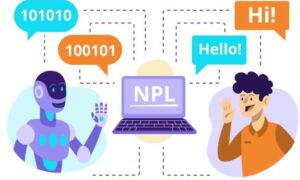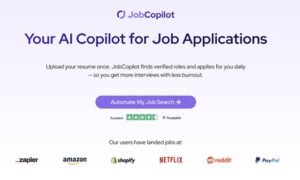Introduction:
In the ever-evolving landscape of technology, Google stands as a trailblazer, consistently pushing the boundaries of innovation. At the forefront of their technological advancements is artificial intelligence (AI), a field where Google has made significant breakthroughs. This article provides a comprehensive overview of Google’s strides in AI, exploring the impact, applications, and the future trajectory of this transformative technology.
Google’s Pioneering Role in AI:
Google has been a frontrunner in harnessing the potential of artificial intelligence for various applications. The company’s commitment to AI research is evident in its initiatives, partnerships, and the development of cutting-edge technologies. From machine learning to natural language processing, Google has played a pivotal role in shaping the AI landscape.
Machine Learning Mastery:
Google’s breakthroughs in machine learning have been instrumental in enhancing various products and services. Through the use of sophisticated algorithms, Google has enabled machines to learn from data, improving their accuracy and efficiency over time. Applications such as Google Search, recommendation systems, and image recognition have all benefitted from Google’s mastery of machine learning.
Natural Language Processing (NLP) Advancements:
Natural Language Processing is a critical aspect of AI, enabling machines to understand, interpret, and generate human-like language. Google’s advancements in NLP are evident in products like Google Assistant and language translation services. These applications showcase Google’s commitment to making AI more accessible and user-friendly.
Google Brain:
The Core of AI Innovation:
Google Brain, Google’s deep learning research project, serves as the core of their AI innovation. It has played a central role in advancing neural networks, leading to breakthroughs in speech recognition, image processing, and even game-playing algorithms. The continuous evolution of Google Brain contributes significantly to the company’s AI leadership.
TensorFlow:
Open-Source AI Framework:
TensorFlow, an open-source machine learning library developed by Google, has become a cornerstone in AI development. Its versatility and scalability make it a preferred choice for developers worldwide. Google’s commitment to open-source principles has empowered the global AI community and accelerated innovation in various domains.
AI in Google Search Algorithms:
Google’s search algorithms have undergone a transformative journey, thanks to the integration of AI. Machine learning algorithms analyze user behavior, preferences, and intent to deliver more accurate and personalized search results. The application of AI in search algorithms enhances user experience and ensures that results align with individual user needs.
AI in Virtual Assistants:
Google’s AI prowess is prominently showcased in virtual assistants like Google Assistant. Through natural language understanding and machine learning, Google Assistant adapts to user preferences, providing a personalized and conversational experience. The continuous refinement of these AI-driven virtual assistants reflects Google’s commitment to human-like interactions with technology.
Google’s AI in Healthcare:
Google’s foray into healthcare includes AI applications that aim to revolutionize the industry. Specifically, from diagnosing medical conditions to predicting patient outcomes, Google’s AI tools contribute to more accurate and timely healthcare interventions. In this context, the intersection of AI and healthcare aligns with Google’s mission to make a positive impact on society through technology. In essence, Google’s endeavors in healthcare underscore the transformative potential of AI in enhancing medical diagnostics and patient care.
AI and Autonomous Vehicles:
Google’s investments in AI extend to the realm of autonomous vehicles. Notably, through the development of AI-driven systems, Google aims to make transportation safer and more efficient. Furthermore, the integration of machine learning algorithms enables these vehicles to adapt to real-time conditions, thus paving the way for a future of autonomous driving. In essence, Google’s foray into autonomous vehicles exemplifies its commitment to leveraging AI for transformative advancements in the transportation sector.
Ethical Considerations in Google’s AI Development:
As Google advances in AI, the company recognizes the importance of ethical considerations. Simultaneously, Google actively engages in discussions surrounding AI ethics, emphasizing transparency, fairness, and accountability. In light of these principles, the company’s commitment to ethical AI development reflects a conscientious approach to the societal impact of their technological innovations. In essence, Google’s dedication to ethical considerations underscores its responsibility in shaping the ethical landscape of artificial intelligence.
The Future Trajectory of Google’s AI:
Looking ahead, Google’s AI endeavors show no signs of slowing down. Notably, the company continues to invest in research, collaborate with the global AI community, and explore new frontiers. Moreover, the future trajectory includes advancements in quantum computing, improved natural language understanding, and the application of AI in addressing complex global challenges. In essence, as Google propels forward in the realm of artificial intelligence, these proactive initiatives underscore its commitment to pushing the boundaries of technological innovation.
Conclusion:
Google’s breakthroughs in artificial intelligence have transcended technological boundaries, marking a paradigm shift in the landscape of innovation. From machine learning to natural language processing, Google’s commitment to advancing AI has shaped how we interact with technology on a daily basis. Moreover, as the company continues to pioneer AI research and development, the impact on diverse fields, from healthcare to autonomous vehicles, promises a future where artificial intelligence plays a pivotal role in enhancing human experiences and addressing societal challenges. In essence, the comprehensive overview presented here highlights the depth and breadth of Google’s contributions to the field of artificial intelligence, setting the stage for a future where intelligent systems empower and enrich our lives.



































